In Stock
Buy Yellow Fischer’s Lovebird Online
$299.99
The Fischer’s lovebird (Agapornis fischeri) is a small parrot species of the genus Agapornis. While most Fischer’s lovebirds are green, several color variations have been bred. The Fischer’s lovebird has a green back, chest, and wings. Their necks are a golden yellow and as it progresses upward it becomes darker orange. The top of the head is olive green, and the beak is bright red. The upper surface of the tail has some purple or blue It has a white circle of bare skin (eyering) around its eyes. Yellow Fischers are predominantly yellow and orange in hue. Young birds are very similar to the adults, except for the fact that they are duller and the base of their mandible has brown markings. They are one of the smaller lovebirds, about 14 cm (5.5 in in length and 43-58g weight.)
Sexing: Fischer’s lovebirds show no sexual dimorphism; therefore, it is impossible to tell whether an individual is male or female through plumage alone.
Behavior: Fischer’s lovebird has a fast flight, and the sound of their wings as they fly can be heard. Like all Lovebirds, they are very vocal and when they do make noise they have a high-pitched chirp and can be very noisy.
Lovebirds are seen as charming and affectionate by their owners. Though they’re not as cuddly as many parrots, they enjoy spending time with their owners, and require regular interaction.
As with many parrots, lovebirds are intelligent and inquisitive birds. In captivity, they like to investigate around the house, and have been known to figure out ways to escape from their cages, and to find hiding places where they may get stuck, and where it may be difficult to locate them.
Diet: Fischer’s lovebirds eat Lovebird Seed, Oat Groats, Cuttlefish Bone, Dried Egg Food, Veggies, Fruits
* courtesy of Wikipedia
*** FISCHER’S LOVEBIRDS CAN NOT BE HOUSED WITH PEACH FACED LOVEBIRDS
DNA Testing
If there is no gender option listed for a bird on our website, that particular species is ‘monomorphic’, which means we’re unable to determine gender without purchasing DNA testing. DNA testing is an additional $149 per bird to guarantee preferred gender. DNA testing may add an additional 3-6 plus weeks to estimated delivery time to allow for gender results. See our FAQs for more info.




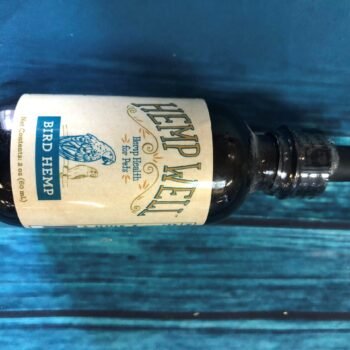

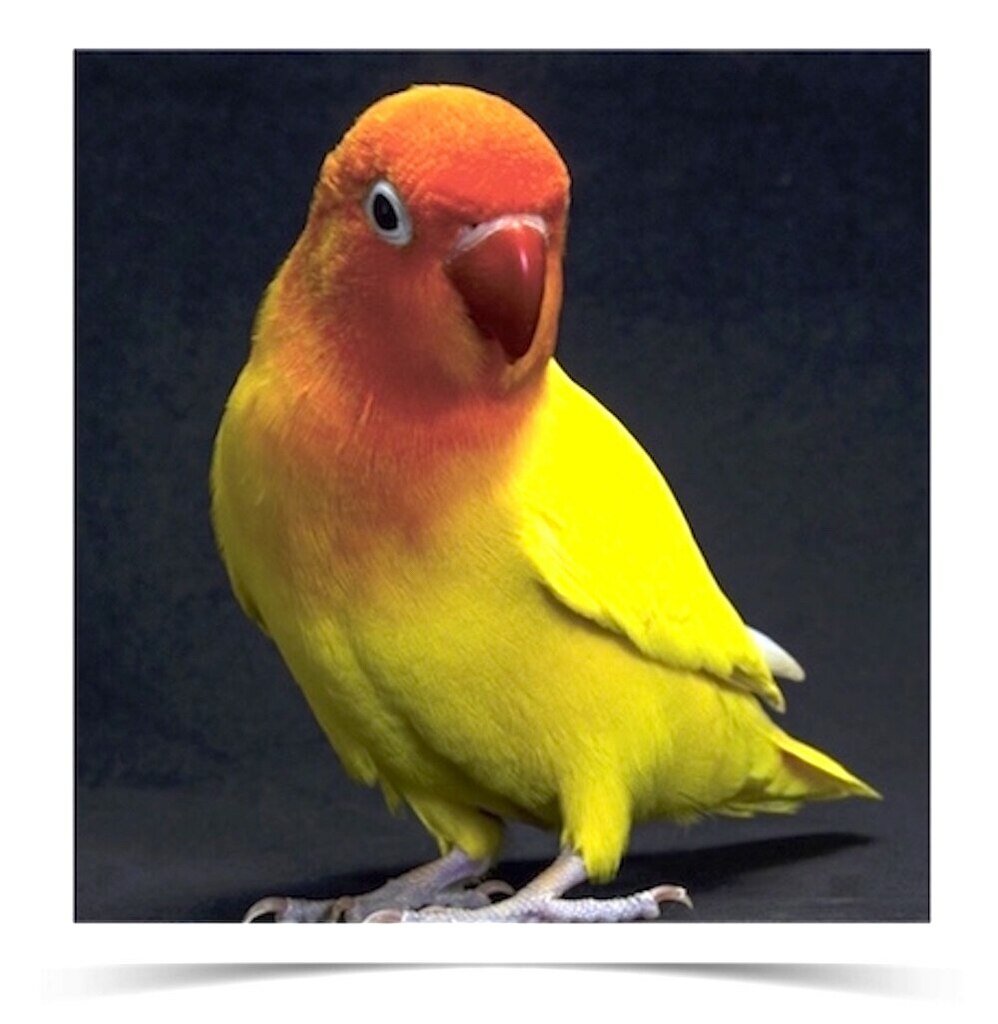
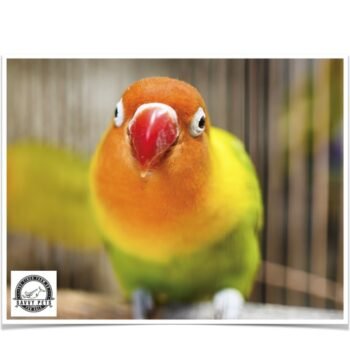
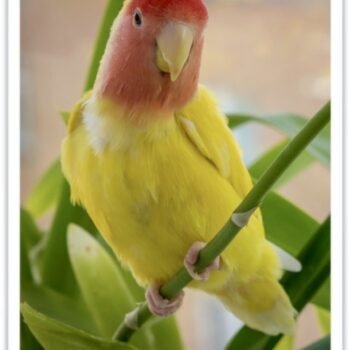

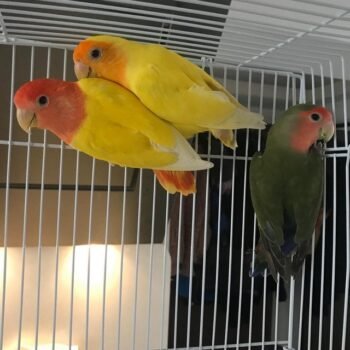
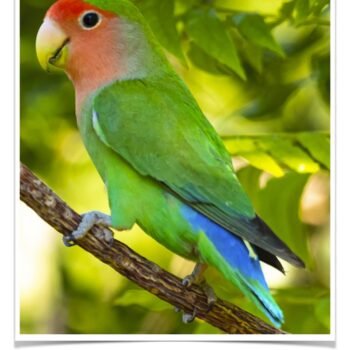
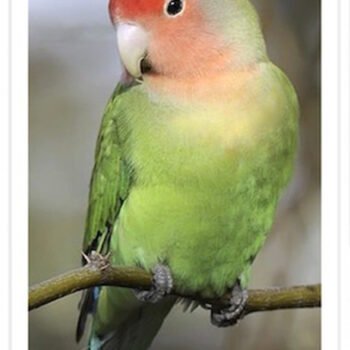
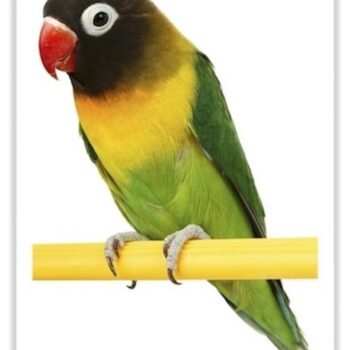
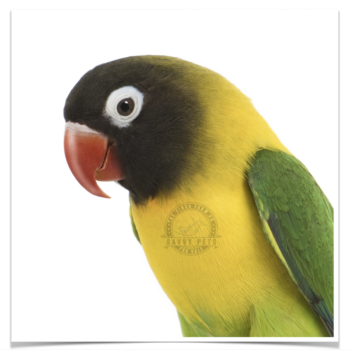

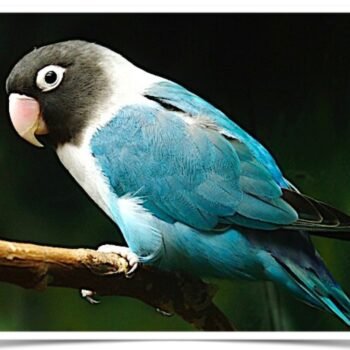
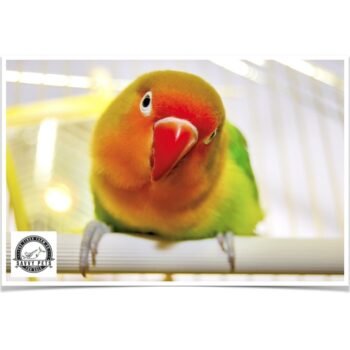
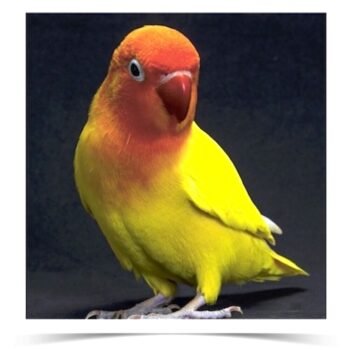
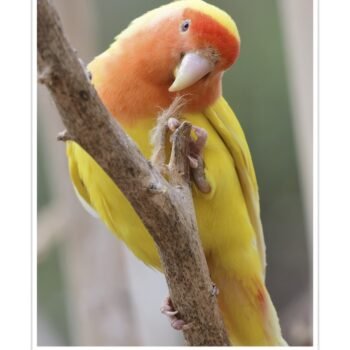
Reviews
There are no reviews yet.